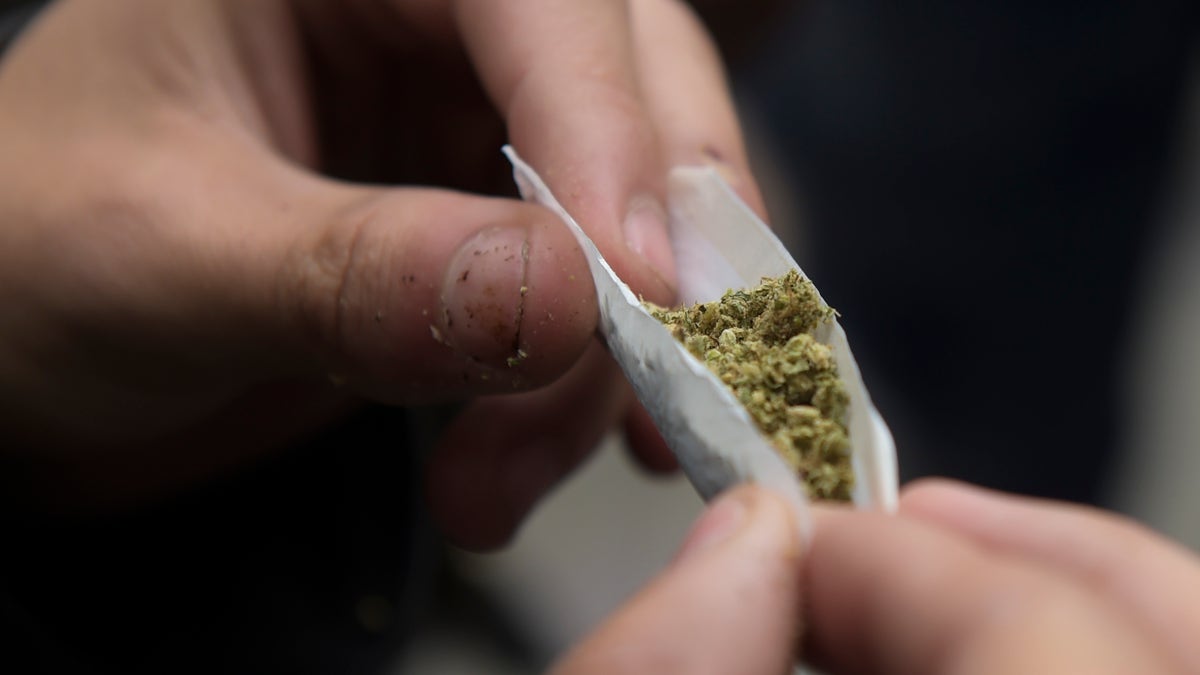Fox News Flash top headlines for January 30
Fox News Flash top headlines are here. Check out what's clicking on Foxnews.com.
Cannabis can impair a person’s ability to drive up to 4 hours after the drug is used, according to a recent study.
"Although performance was improving at 3.5 hours, recovery was not fully seen until 4.5 hours post smoking'" researchers stated in the report published in the JAMA Psychiatry.
A group of researchers from the Center for Medicinal Cannabis Research at the University of California San Diego looked at 191 regular cannabis users and found that smoking cannabis led to significantly declined simulated driving scores, according to the authors of the two-year randomized trial study.

An activist rolls a joint during a protest against the prohibition of bearing a minimum dose of marijuana for personal use, in Bogota on September 6, 2018. - The government is preparing a decree that empowers the police to confiscate small quantities of drugs to consumers. ( RAUL ARBOLEDA/AFP via Getty Images)
The participants were given either a placebo cigarette or a cannabis cigarette containing either 5.9 % or 13.4 % levels of delta-9-tetrahydrocannabinol (THC), the psychoactive compound in cannabis, the study said.
The researchers found participants in the THC group showed a significant decline in Composite Drive Scores (CDS) related to a 25-minute simulated driving experience. The CDS assessed driving variables that included following a lead car while varying speeds, noting swerving in their lane, and responding to divided attention tasks, according to the study.
The sharpest comparative difference in driving scores between the placebo and the THC group was noted at 30 minutes and 1 hour and 30 minutes after the time of inhaling the cannabis cigarette, according to the published report.
The study said borderline differences in driving scores were found between the two groups at 3 hours 30 minutes and no differences were noted at 4 hours 30 minutes.
The researchers said in the report that the participants were hesitant to drive immediately after smoking but nearly 69% of the participants reported they were ready to drive at 1 hour 30 minutes post inhalation, setting up a potentially dangerous scenario.
"Although users in the THC group felt impaired and were hesitant to drive at 30 minutes, by 1 hour-30 minutes they believed the impairment was wearing off and were more willing to drive. This was despite their performance not significantly improving from the 30 minute point," Senior author Thomas Marcotte, PhD, co-director of CMCR and a professor of psychiatry at UC San Diego School of Medicine, said in the University news release.

Weed is a big holiday gift in California.
OHIO'S POT LEGALIZATION EFFORT MOVES FORWARD
Marcotte added, "This may indicate a false sense of safety, and these first few hours may constitute a period of greatest risk since users are self-evaluating whether it is safe to drive."
The authors of the study also found that simulated driving ability decreased in the THC group, but it was not related to blood THC concentration, THC content of the cigarette, or history of THC use.
"The complete lack of correlation between blood concentrations and driving performance was somewhat surprising," Co-author Robert Fitzgerald, PhD, professor of clinical pathology at UC San Diego School of Medicine said in a news release. Fitzgerald who is also the director of the Toxicology Laboratory and associate director of Clinical Chemistry Laboratory at UC San Diego Health added "its strong evidence against developing ‘per se’ driving under the influence statutes."
"Per se" laws, establish that a violation occurred if a legal standard was broken. For example, having a 0.08 BAC (blood alcohol content) after a breath test or blood test, by itself, means that you will be likely be found guilty of driving while intoxicated without any other evidence to support that, according to legal experts.
California State Assemblymember Tom Lackey (R-Palmdale) said in the UCSD news release, "This groundbreaking research indicates that cannabis use does impair driving ability, but factors differ from alcohol."
Lackey also said, "For example, these data show that per se laws for THC levels are not supported scientifically. It also underscores the need for further research on this topic. Policymakers still need a better understanding of the effects of different ways of consuming higher concentration products to charter a path forward."
CLICK HERE TO GET THE FOX NEWS APP
The California researchers said that the study emphasizes the challenge in understanding the relationship between cannabis consumption and an individual’s ability to drive as well as identifying which individuals are most at risk for impaired driving when using cannabis.
Co-author of the study Igor Grant, MD, CMCR director and Distinguished Professor of Psychiatry at UC San Diego School of Medicine pointed out in the release the need to appropriately label cannabinoid medicines.
The study authors suggested future research addressing factors such as personal experience with cannabis, ways cannabis is ingested by an individual, and the individual’s biological differences in relation to driving impairment.








































